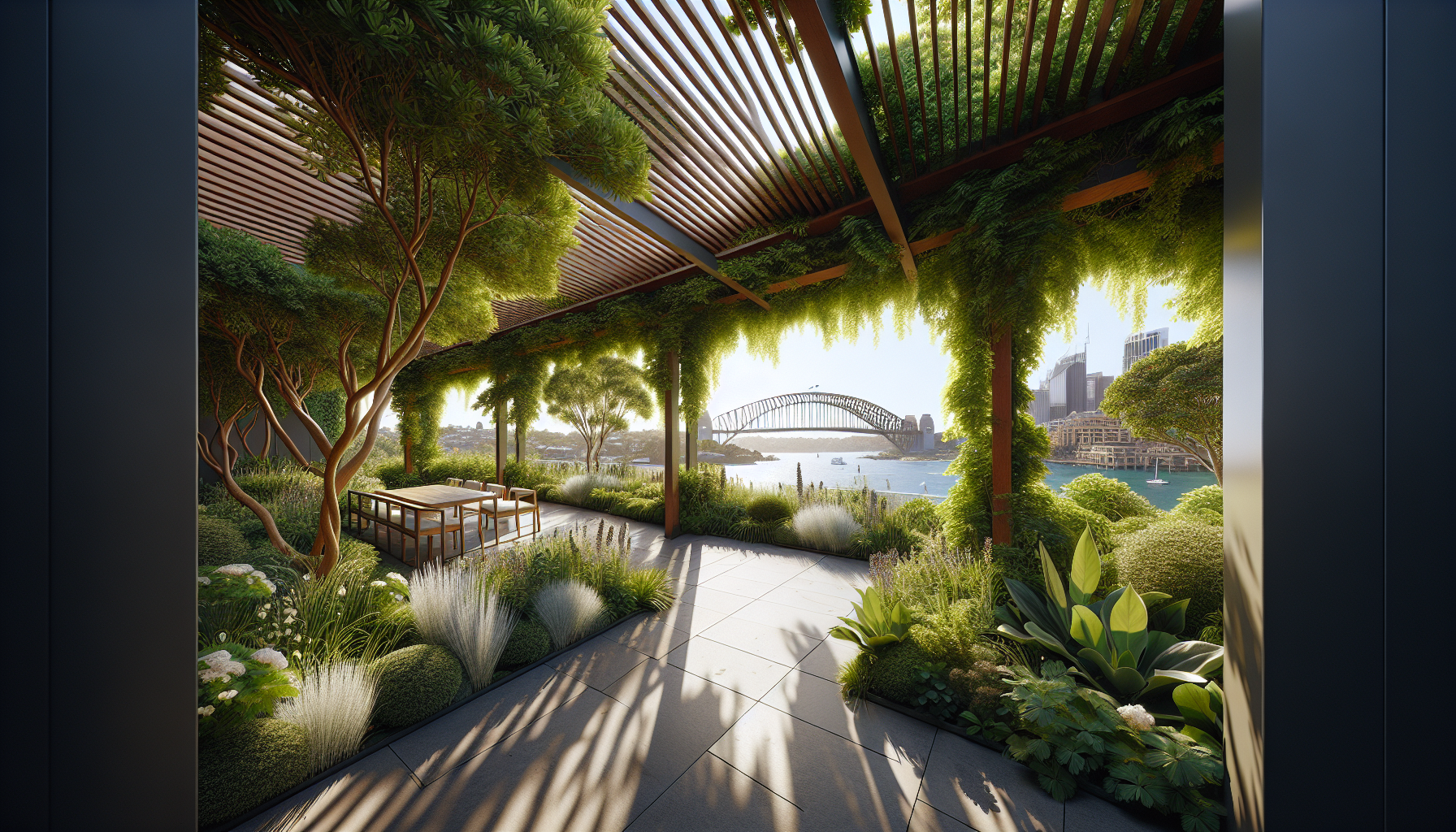Top Trending Carport Designs for Modern Homes
When considering adding a functional and stylish structure to protect your vehicles, modern carport designs have come a long way. The latest trends in carport design not only offer shelter but also enhance the aesthetic appeal of contemporary homes. Homeowners are now embracing carports as alternatives to traditional garages due to their versatility, cost-effectiveness, and visual harmony with modern architecture.
Minimalist and Sleek Structures
Minimalism reigns supreme in modern home design, and carports are no exception. Clean lines and a monochromatic color palette define the most sought-after carports, allowing them to blend seamlessly with the minimalist façade of a home. Materials such as powder-coated steel and anodized aluminum assist in creating durable, minimalist carports that are both lightweight and resistant to the elements. These sleek structures often forgo unnecessary embellishments, focusing on the practicality of design that maximizes the usability of the space.
Integrated Solar Panel Carports
With a growing focus on sustainability and energy efficiency, solar panel carports are a trend intersecting innovation with design. These carports serve a dual purpose: offering shade for vehicles while harnessing solar energy to power your home or charge electric vehicles. Integrating solar panels into the carport roof reduces utility bills and contributes to a home’s modern aesthetic, showcasing a commitment to green living. Solar panel carports have become especially popular as they often require less space than traditional ground-mounted solar systems, making them ideal for urban homes with limited space.
Multi-Functional Carports
Modern carports are increasingly designed to offer more than just a parking area. Homeowners are selecting designs that can double as outdoor entertainment areas, workshop spaces, or even garden retreats. These multi-functional spaces often incorporate retractable screens, built-in lighting, and ceiling fans, providing comfort and functionality beyond vehicle protection. When not used for parking, these carports can serve as an extension of the home for hosting gatherings or pursuing hobbies, making them a versatile addition to any modern residence.
Carport Ideas for Small Spaces
When maximizing your property’s potential, a well-designed carport in a small space can be a game-changer. Not only does it provide essential protection for your vehicle from the elements, but it also adds value to your home. The key to creating a functional carport in limited space is clever design and efficient use of your available area.
Vertical Space Utilization
One effective strategy is to focus on vertical space. For instance, installing a cantilevered or overhanging structure can provide the necessary coverage for your vehicle without the footprint of traditional supports. This allows for more maneuvering room within the carport itself. Additionally, the inclusion of overhead storage can keep your carport clutter-free. Utilizing strong, sturdy shelving units or even a loft area keeps seasonal items and tools tucked away yet accessible when needed.
Custom-Fit Solutions
Each small space carport project can benefit from a custom fit. This might involve a tailored design that follows the unique contours of your property, ensuring no inch goes unused. A sloped carport that matches the gradient of your land or a curved roof that complements the architectural elements of your home can both be aesthetically pleasing and space-saving options. Moreover, selecting a carport with a minimalistic design and slim construction materials can reduce visual clutter and make the area feel more open.
Efficiency is also key in smaller carports. Foldable or retractable carport models offer versatility; they can be expanded to shelter your vehicle or minimized when that space is needed for other activities. Innovations like solar panel roofing can even turn your small carport into an energy-producing hub, blending functionality with eco-friendliness. Moreover, integrating your carport directly into your home’s facade can save space and materials, creating a seamless addition that boosts curb appeal and functionality.
Customizable Carport Solutions for Every Budget
When protecting your vehicle from the elements, versatility in design and affordability are key considerations. With customizable carport solutions, you can safeguard your car, motorcycle, or RV from harmful weather conditions and ensure that the carport fits snuggly within your financial means. Flexible options are available whether you’re a homeowner on a tight budget or someone with a bit more to spend on a luxurious shelter for your prized possessions.
One of the greatest advantages of customizable carports is the wide range of materials and styles available to fit every budget. For the cost-conscious consumer, we offer sturdy, no-frills options made from high-quality, galvanized steel that promises durability and efficiency without breaking the bank. On the other end of the spectrum, for those who desire a bit of aesthetic flair, there are premium choices featuring polycarbonate roofing and custom trim options that transform a basic carport into a stylish extension of your home.
Cost-Effective Carport Kits
For DIY enthusiasts, cost-effective carport kits can be easily assembled with minimal tools and expertise. These kits come with all the necessary components and detailed instructions and can be tailored to fit your vehicle’s dimensions or available space. This off-the-shelf solution not only saves you money on labor costs but also provides a satisfying project that comes with the personal pride of having built your carport with your own hands.
Part of the customizable nature of modern carports is their ability to grow with your needs. Starting with a single-vehicle layout, your structure can be designed for easy expansion to accommodate additional vehicles or storage needs in the future. This modular approach ensures that your investment is never wasted, as you can simply add to the existing layout without needing a complete overhaul, catering to budget changes and requirements over time.
Do-It-Yourself Carport Plans and Tips
Constructing your carport can be rewarding and practical for any DIY enthusiast. Detailed carport plans are the cornerstone of this venture, as they provide the essential guidelines and materials lists necessary for the build. To start, assess the area intended for the carport to ensure ample space for your vehicle and ease of access. Additionally, consider the material that best suits your climate and durability requirements—whether it be wood, metal, or a combination of both.
Before diving into the construction phase, it’s crucial to understand your local building codes and obtain any required permits. This ensures the legality of your structure and guarantees that your carport meets safety standards. After securing the legalities, choose a design that complies with your house’s aesthetics for a harmonious appeal. Popular carport designs range from simple, open-sided structures to more elaborate plans incorporating storage space or workshop areas. Embrace customization in your DIY project, which allows for tailoring features such as the roof style—flat or pitched—to meet specific needs such as snow load or shade provision.
Clear, step-by-step instructions in your carport plans will outline the process, from laying the foundation or base to framing the structure and attaching the roof. It is recommended that DIY builders pay special attention to anchoring the carport securely; this is especially important in regions prone to high winds or extreme weather. Handy tips from experienced builders often suggest using heavy-duty hardware and incorporating additional bracing for enhanced stability.
Finally, for those new to constructing large outdoor structures, consider engaging a more experienced DIYer or a professional for guidance through trickier parts of the process. Furthermore, don’t overlook the importance of regular maintenance once your carport is completed. Regular checks and upkeep contribute to the longevity of your DIY build, allowing it to protect your vehicle for years to come.
Eco-Friendly Carports: Sustainable Design Ideas
When it comes to creating an eco-friendly home, many homeowners overlook the potential of their carport. However, with increasing awareness of environmental issues, sustainable design ideas for carports are becoming more vital. Eco-friendly carports are not only better for the environment, but they can also enhance the curb appeal of your property and even improve your home’s energy efficiency.
One key design idea for an eco-friendly carport is the use of sustainable materials. Building structures like carports with materials such as reclaimed wood or bamboo can significantly reduce the construction process’s carbon footprint. These materials are renewable and have a much lower environmental impact than traditional choices such as concrete and steel. Furthermore, with the right treatment and maintenance, sustainable materials are incredibly durable and can withstand various weather conditions.
Integrating Solar Panels
Another progressive design concept is integrating solar panels into the carport’s roof. This provides shade for your vehicle and turns a simple parking area into a powerhouse for generating green energy. Solar-powered carports can feed electricity back into your home or charge your electrical vehicle, saving you money on your energy bills and reducing your reliance on non-renewable energy sources. Moreover, technological advancements have made solar panels more aesthetically pleasing and efficient, making them a functional and attractive addition to carport designs.
Green Roof Carports
Incorporating green or living roofs into carport designs is yet another step towards sustainability. A green roof involves covering the roof with vegetation, which can help with insulation, reducing heat buildup during summer and retaining warmth in the winter. The plants also improve local air quality and can create a habitat for local wildlife. This type of roof not only helps with energy conservation but also turns your carport into a vibrant and eco-friendly structure that positively impacts the ecosystem.
Optimizing the design of your carport for natural ventilation and lighting can also have substantial environmental benefits. Thoughtfully placed gaps or openings can allow for the natural flow of air, reducing the need for artificial cooling and ensuring that the space remains comfortable. Additionally, designing the carport to maximize daylight can minimize the need for electrical lighting during the daytime, further conserving energy. With these sustainable design ideas, your eco-friendly carport can contribute meaningfully to energy conservation and a smaller ecological footprint.




